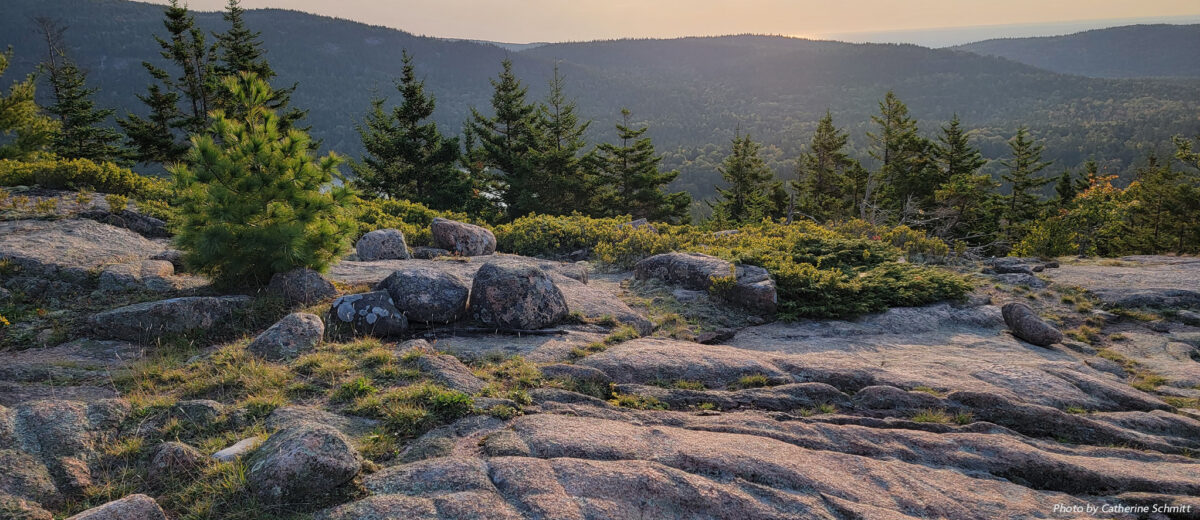Schoodic Institute’s focus is understanding environmental change taking place in Acadia and beyond, and helping managers respond and adapt to change.
Our location in a place of ecological transition between temperate and boreal forest as well as coastal to inland ecosystems inspires our research to document and understand change from “sea to trees.” The region is experiencing longer growing seasons, heavier rain events as well as periods of drought, and shifting plant and animal populations. Extreme weather events are damaging ecosystems, cultural resources, and infrastructure. Changes are happening quickly and are likely to accelerate in coming years to decades. Addressing these challenges here in Acadia, in neighboring communities, and in parks and protected areas beyond Acadia, requires work that spans boundaries – among ecosystems, human communities, and institutions.
Most managers of parks and other protected areas were not trained to deal with the types of rapid changes they are experiencing. Meanwhile, most of the strategies that have been proposed to adapt to rapid change are untested. Our work is providing some of the first on-the-ground tests of multiple adaptation strategies to ensure that today’s management efforts (and investment) will continue to provide benefits for decades to come, while also supporting leadership of Wabanaki scientists in restoration planning.
Wabanaki communities, the National Park Service, and Friends of Acadia are important partners in this work to help managers of protected areas respond to climate change and its impacts while restoring the function and diversity of park ecosystems.
For more information, contact Climate Adaptation Scientist Chris Nadeau, cnadeau@schoodicinstitute.org.
